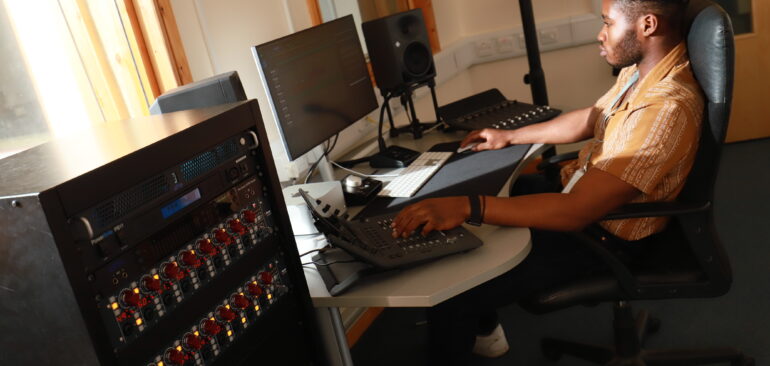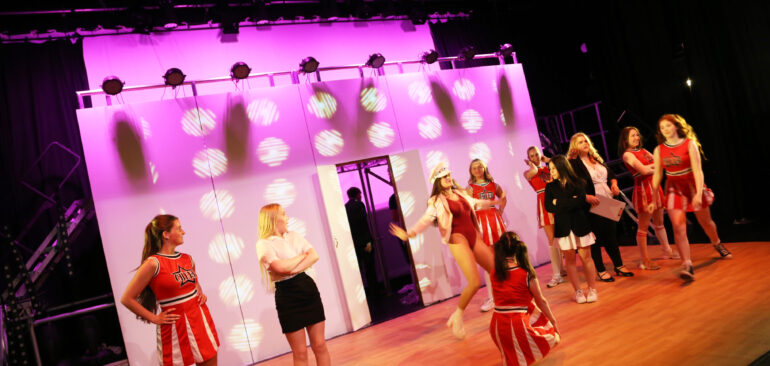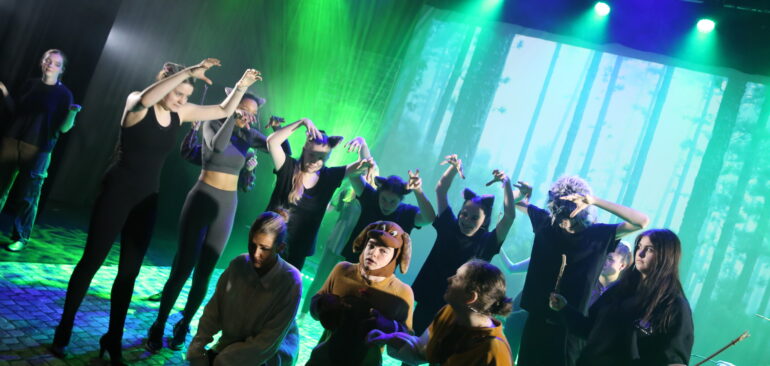A Level Music
Join a music band and learn all about jazz, solo work and instruments. A Level Music is a two year course which will give you the opportunity to explore all areas of composing, performing and listening. Many students who enjoy and successfully complete this subject typically progress to study Music at either university or at music college.
- Course Information
- Course Code
- LAMUSIC
- Attendance Pattern
- Daytime
- Course Level
- Level 3
- Study Mode
- Full Time
- Course Location
- Langdale Road, Leyland
- Age Group
- School Leavers (16-18)
- Course Duration
- 2 years
- Overview
The A Level Music course allows you to choose a particular focus for your study. If your strength lies in performing, then you can choose to study 35% of the course for this option and 25% for composition. If your strength lies in composition, then that element can be 35% of the course with performance at 25%. For your coursework, you will develop a solo performance recital, a composition brief set by the exam board plus one (or two if you specialise in composition) additional compositions.
Alongside these two components is the analysis and listening component, culminating in a written paper worth 40% of your course. For this paper, you will study the development of Classical Music and Jazz, as well as studying the development of programme music in the romantic period.
A Level Music covers the three areas of composing, performing and listening. You will:
- compose your own music and learn to write in different musical genres
- perform as a soloist
- listen to and analyse music – Symphonies of the Classical and early Romantic era, Jazz and music of the Twentieth Century
Course Highlights:
Music Academy, free 1:1 Instrumental Tuition, Workshops & Masterclasses
- Entry Requirements
A minimum of 5x Grade 5s, including Music OR ABRSM Grade 5 Music Theory AND successful practical audition.
- How will I be assessed?
- Performance: 10-12 minute recital as a soloist, recorded in your second year
- Composition: one written to a brief and one free composition
- Listening & Analysis: a written exam covering aural skills, analysis and the historical context relating to Classical and Romantic music as well as Jazz and Popular Song
- Progression Pathway
A Level Music is accepted by universities for a wide range of courses and a large proportion of students go on to study Music at either university or music college. As a Music student, you will develop a range of skills that will stand you in good stead for music-related careers, but that are also transferable to a very wide range of jobs. The career opportunities include freelance performing, conducting, orchestral playing and orchestral management, working at the BBC, music librarianship, publishing and retailing, lecturing, classroom and instrumental teaching, music therapy, cathedral music and instrument making. Also available are specialist workshops and master classes.
Music graduates are also welcomed by employers in such non-musical fields as the civil service, accountancy, insurance and computing.
Our students in recent years have progressed to:
- The Royal College of Music
- Trinity College of Music
- Birmingham Conservatoire
- The Royal Northern College of Music
- Manhattan School of Music
- Oxford and Cambridge University
- Royal Welsh College of Music and Drama
- Bangor University
- Durham University
- Leeds College of Music
- Leeds University
- National Careers Service
For guidance about what careers subjects can lead on to please follow this link to the National Careers Service.




